Future shapers of the mobility concepts of tomorrow
26. Mai 2021
Electromobility and autonomous driving are the two biggest trends dominating the automotive sector and having us rethink the concept of mobility.
An active future shaper in these sectors, Baumann Automation develops assembly and production lines for the mobility concepts of tomorrow.
Electromobility
Electromobility is a vital element in the energy transition in the quest to reduce the amount of CO2 emitted from vehicles. Baumann Automation sees electromobility as a key area in the automation of production processes. The company has been providing battery assembly systems for many years and is specialized in innovative automation solutions with networked production and control processors.
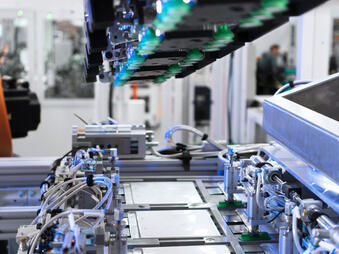
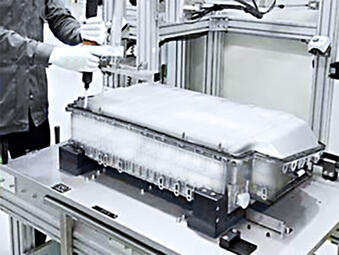
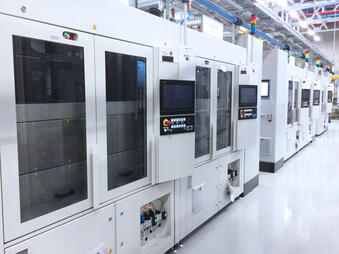
- Battery assembly systems
Baumann Automation has a profound level of knowledge and comprehensive expertise in battery assembly systems – for both modules and pack assembly. The company has far-reaching expertise in manufacturing highly complex systems through various national and international projects. Baumann builds production systems for energy storage for customers in the automotive industry. Thanks to its broad range of services, the company can cater to its customers' needs in a flexible manner and offer tailored solutions for the assembly of complex storage systems.
- Battery module
The individual cells are wired in series (and in parallel) in the battery module and as such connected with one another. For module assembly, Baumann realizes various steps for the customer: such as stacking, riveting, welding, bolting, dispensing, cell handling, terminal welding, FTF integration, labeling/packaging, leak testing, module and battery handling and manual assembly. The Baumann team offers solutions from the cell test to the module test.
- Battery pack
Baumann Automation devises ideal solutions for pack assembly, from complex complete modules through to EOL testing. Baumann develops flexible concepts for pack assembly in a combination of manual work stations and robot cells. The assembly concepts are both scalable and expandable. As a result, they can be adapted for power-up processes in production. This creates benefits for the customer and guarantees a better investment to market.
Power electronics
In electric and hybrid vehicles, the power electronics control the electric drive and create the connection between electric motor and high-volt battery. The electric motor is regulated and monitored by the inverter. Its job is to supply the e-powertrain with the torque it needs and control its speed. The inverter also has to convert the battery's direct voltage into the alternating voltage required by the electric motor.
Baumann Automation develops for its customers a range of special production processes, such as press-fitting and dispensing for the inverter assembly and the inverter test. The services range from the testing of individual components during assembly through to the complete module. In the automated testing technology sector, power electronics for electromobility being a particular focus, Baumann Automation is working with its partner company Löhnert Elektronik to find innovative solutions for its customers.
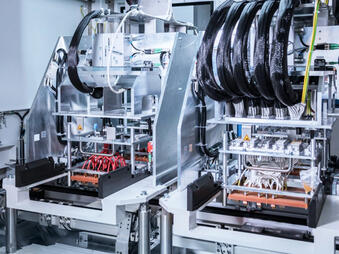
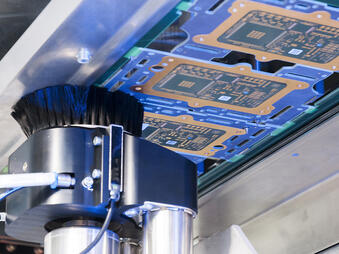
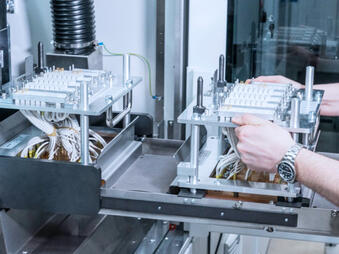
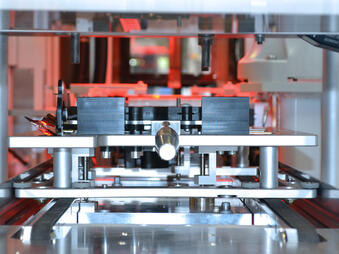
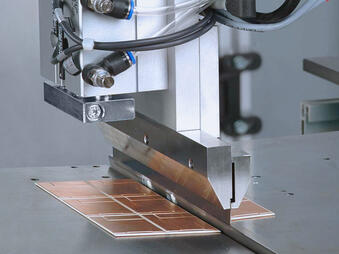
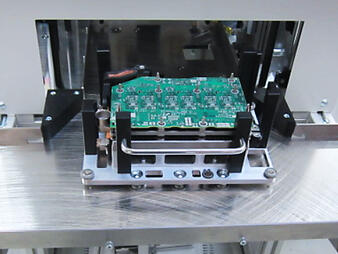
Hydrogen
Especially in the case of HGVs, batteries are still not the first choice due to their limited range and long charging times. Which is why the electromobility sector sees the fuel cell drive as the key to achieving climate-neutral transport of products and materials by using hydrogen produced from renewable sources.
Baumann Automation produces future-oriented assembly systems for fuel cells that guarantee customers high degrees of flexibility, precision and reliability. The company also provides support for building prototypes and mapping the entire process chain.
Autonomous driving
For autonomous driving, a combination of various sensor systems, which collect data from the current traffic situation to identify obstacles, must be built into the vehicle. Driver assistance systems support the drive and increase safety by keeping to the lane, initiating emergency braking or monitoring the blind spot. Modern assistance systems help the driver and make autonomous driving safer. And they will become even more important in the future. Cameras detect cars and people, road markings and traffic signs, for example. Laser scanners, radar and ultrasound sensors measure the distance and speed of other objects in the surroundings.
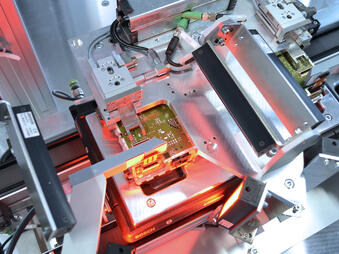
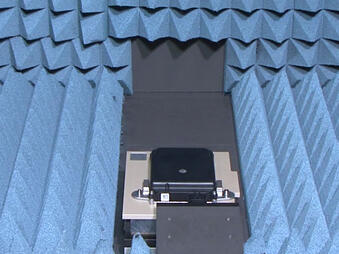
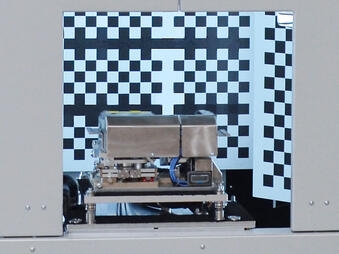
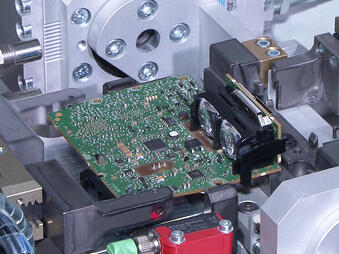
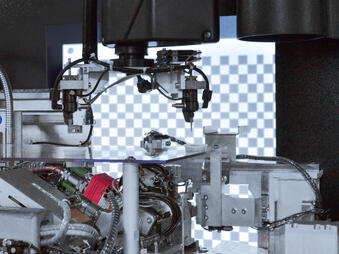
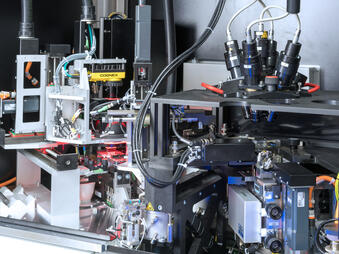
- Automation for Advanced Driver Assistance Systems (ADAS)
Driver assistance systems are becoming increasingly sophisticated, both mechanically as well as electronically, and cannot be produced to the high quality standards required without automation. When it comes to lines for producing driver assistance systems, Baumann Automation can draw on its 35 years of experience and know-how in automation processes, and offer customers a solution optimally tailored to their requirements. Individually developed and standardized testing systems from Baumann already cover the majority of tests required for ADAS.
- Safety enhanced through perfect harmony between testing and assembly
The traceability of all assembled components and the finished module is essential to zero-defect production. Testing the single circuit board through to the finished module is a key element of the production line. Standardized test procedures for circuit boards or other component parts are used for this purpose. IC testers, flash systems, function and temperature testers (hot test up to +140 °C/cold test at -40 °C) are available from Baumann as standard cells. The component-specific test procedure is applied during the assembly process. For this purpose, Baumann is developing special testers for the various driver assistance systems, including image testers for camera systems, individual test systems for a diverse range of control devices or for radar systems.
After assembly, the module is put through the final tests. Various final test processes, as well as calibrations, hardware or leak tests, are performed on the modules. Baumann's product range includes these special final tests as well.
For the conventional processes, such as depanelization, adjustment, bolting, crimping, assembly, cleaning, laser marking through to supplying intelligent components, Baumann solutions are based on flexible modular systems that can be specially adapted to any customer requirement. Baumann also supplies various process-optimized solutions to solve highly complex tasks, such as Active Alignment (adjusting the optics) or assembling ribbon cables.


